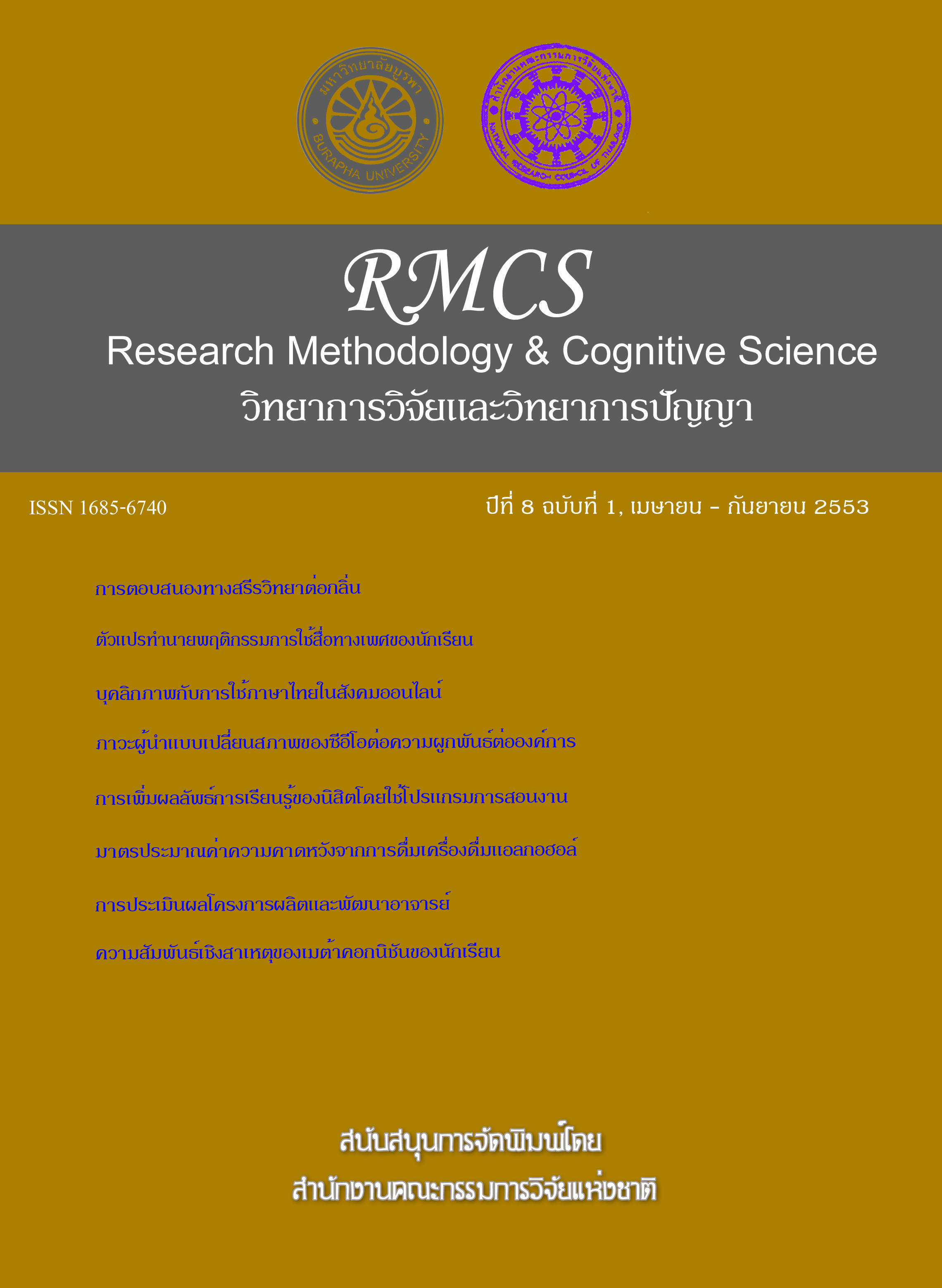อิทธิพลของภาวะผู้นำแบบเปลี่ยนสภาพของซีอีโอต่อความพึงพอใจในงานและความผูกพันต่อองค์การของพนักงานบริษัทโรงกลั่นน้ำมันในประเทศไทย
Main Article Content
Abstract
Influence of CEO Transformational Leadership on Job Satisfaction and Organizational Commitment in Refining Companies in Thailand
The objectives of this research were to develop and validate a causal relationship model of the influence of a chief executive officer’s transformational leadership on job satisfaction and organizational commitment in the organizational cultures of refining companies in Thailand. The model involved six latent variables: CEO transformational leadership, constructive culture, collectivistic culture, innovative culture, job satisfaction, and organizational commitment. Both qualitative and quantitative methods were employed. Qualitative research involved in-depth interviews which were used to construct the conceptual framework. The research instrument was a questionnaire used to collect data from 330 administrators and other personnel working in Thai refining companies. The quantitative part of the study involved the application of structural equation modeling. It was found that the model was consistent with the empirical data. Goodness of fit measures were found to be: Chi-square 48.345 (df=62, p-value=0.898); Relative Chi-square ( χ 2/df) 0.780; Goodness of Fit Index (GFI) 0.984; Adjusted Goodness of Fit Index (AGFI) 0.956; Comparative Fit Index (CFI) 1.000; Standardized Root Mean Square Residual (SRMR) 0.026 and Root Mean Square Error of Approximation (RMSEA) 0.000. It was also found that (1) The transformational leaderships of CEOs had a positive and direct influence on constructive culture, collectivistic culture, and innovative culture. (2) The transformational leaderships of CEOs had a positive and direct influence on job satisfaction. (3) Constructive culture had a positive and direct influence on job satisfaction; innovative culture had a positive and direct influence on job satisfaction; collectivistic culture had a positive and direct influence on organizational commitment. (4) Job satisfaction had a positive and direct influence on organizational commitment.

